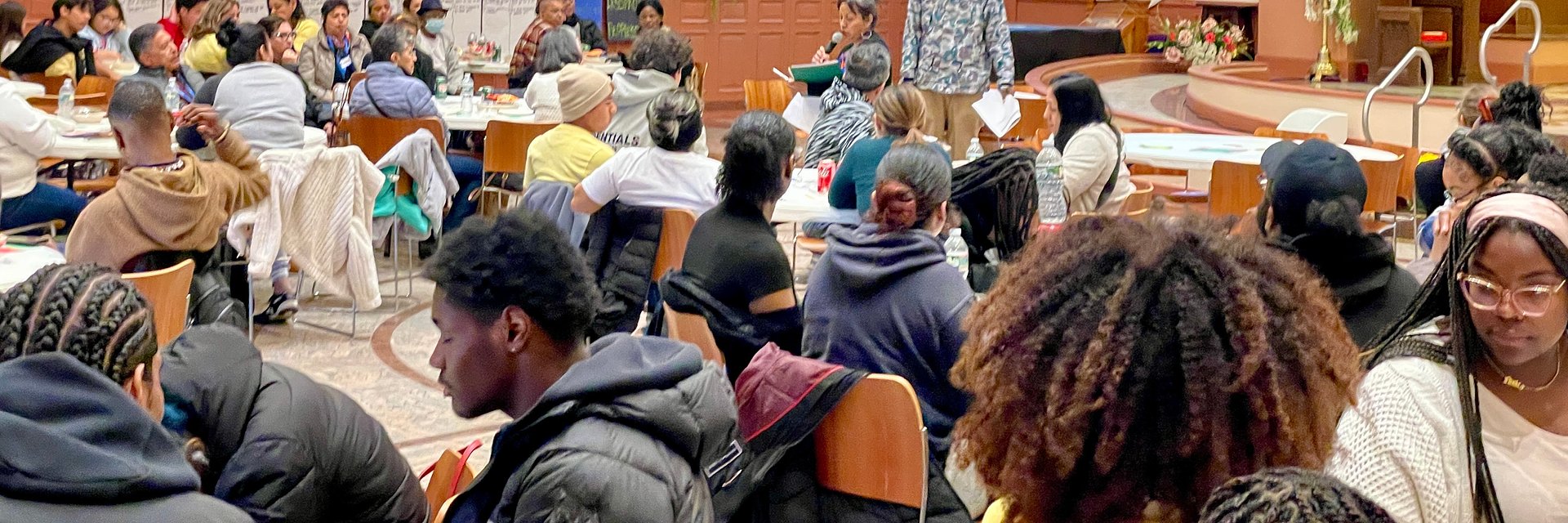Community members vote and affirm the widespread demand for affordable housing, food access, and support for immigrants.
Contact: Kat Ramos, kat@economicdemocracy.us, 201-563-2447
BOSTON, MA - On Saturday, more than a hundred Boston residents came together for the first ever People’s Budget Assembly to directly decide on the urgent funding priorities of working class and BIPOC neighborhoods across the city that have been historically disinvested from. Families, elders, high school youth and immigrants filled the room to decide what a liveable Boston actually requires.
The assembly, hosted by the city-wide coalition Better Budget Alliance (BBA), built on the findings of a large survey the BBA conducted in 2025 known as the People’s Budget Survey. Through the survey, almost 700 Boston residents named stable housing, reliable access to food, immigration support, and youth jobs as urgent community needs that must be fully funded. These priorities were voted on and affirmed by assembly attendees.
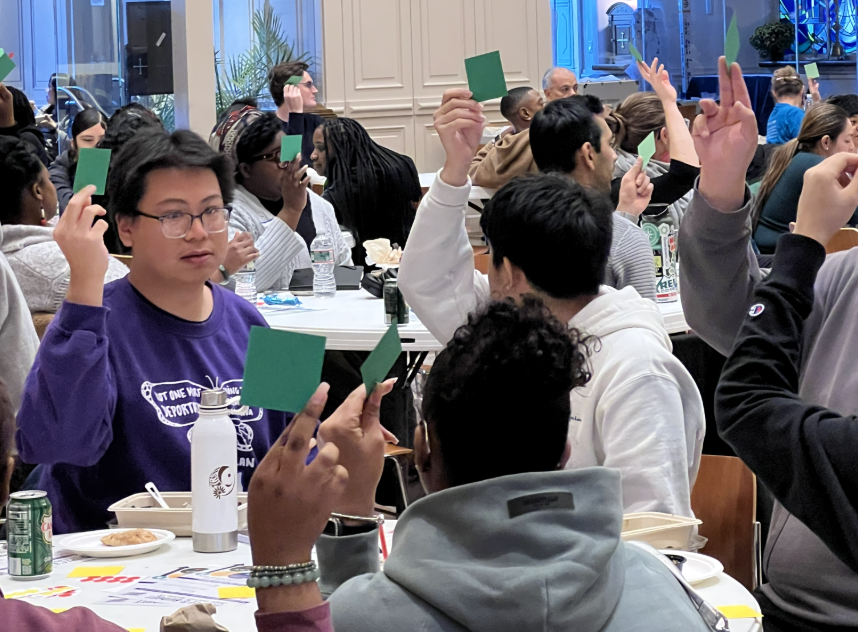
“Youth jobs, immigration and affordable housing [really resonate with me],” said Carlise, a Dorchester resident and member of Youth Justice and Power Union (YJPU). “Our economy is so based on the work that our immigrant neighbors do, I feel like it should be easier for immigrants to get jobs and housing, and more access to food,” Carlise said.
Across both the assembly and the survey, the message was unmistakable: Boston residents are living with critical needs that jeopardize their ability to stay rooted in the city. 82% of survey respondents named feeling dissatisfied with the current allocations in the city’s operating budget - and came together to begin crafting a real alternative that better meets the needs of the people.
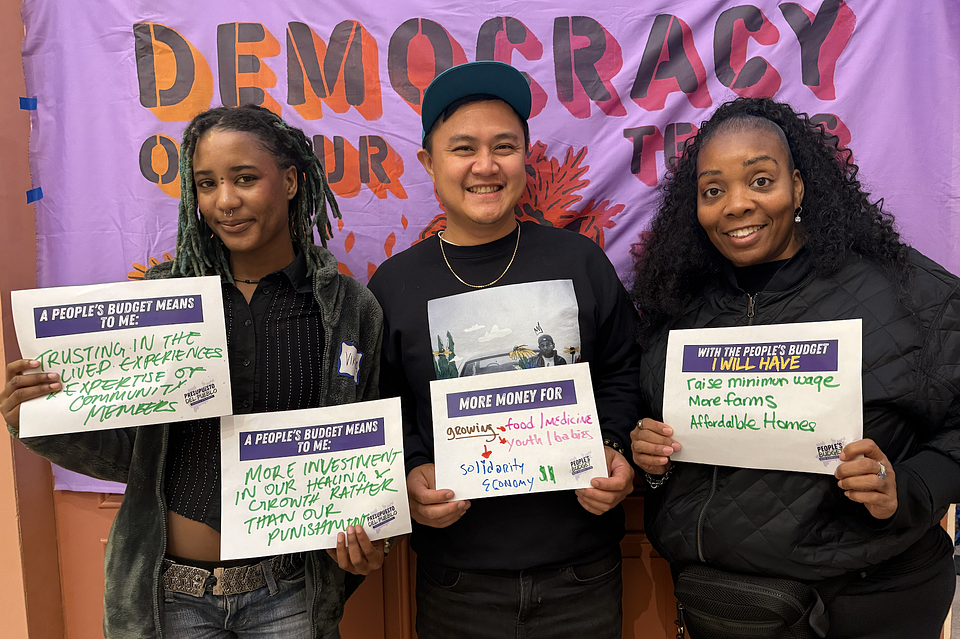
“When the people have actual economic participatory power…it looks like waking up with housing, that I’m not sweating over a potential rent or utility bill,” said Geo Costomiris from the Boston Ujima Project at the assembly.
The assembly reflected a multigenerational, bilingual space that brought together residents from Dorchester, Roxbury, Mattapan, Hyde Park, East Boston, Jamaica Plain, and Allston. Interpretation was available, childcare and mutual aid tables were active, and the people most affected by the city’s budget priorities were not simply in the room, they were leading it.
This year’s People’s Budget process also builds on Boston’s first ever cycle of Participatory Budgeting, which concluded in 2025. Residents got to propose and vote on how to spend $2M of the city’s $4.6B budget. But the BBA, echoing concerns of many residents, has decried the $2M allocation, demanding resident access to at least $40M through this process. Mayor Wu’s resistance to increasing the funding for participatory budgeting helped spark the People’s Budget campaign, galvanizing residents to create their own collective budget proposal to rival the Mayor’s and city council’s priorities.
Saturday’s Assembly affirmed what residents have said throughout the Participatory Budgeting cycle: people want deeper investments in housing, food access, immigrant support, and youth jobs and a shift away from inflated public safety spending that has failed to address the root causes of harm. The call to divest from policing and invest in real community safety and stability – meeting the needs of Boston residents – was one of the clearest demands of the day.
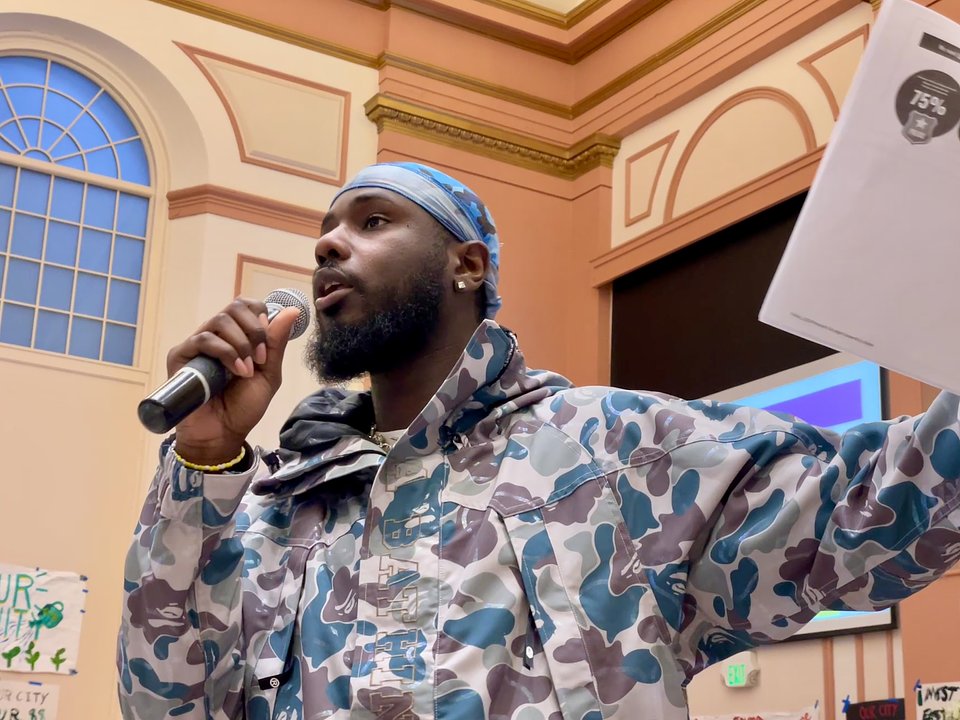
“We need a city budget that really invests in the root causes of our public safety challenges,” said Hessann Farooqi, a South End resident. “I live up the street from Mass and Cass, where we see very clearly so many of the challenges – poverty, addiction, public safety issues…it’s important we invest in housing, education, good paying jobs and other social services.”
By the end of the assembly, residents had voted to affirm the core priorities for the FY26 People’s Budget; a community crafted roadmap that demands the city invest in housing people can afford, food they can access, and communities where families can stay rooted. People signed up to stay involved, shape policy proposals, and bring more neighbors into the process.
The People’s Budget now stands as a serious alternative to the city’s FY26 proposal; a blueprint by the people most impacted by Boston’s budget decisions, and a clear expression on what residents believe is required for a truly livable city.
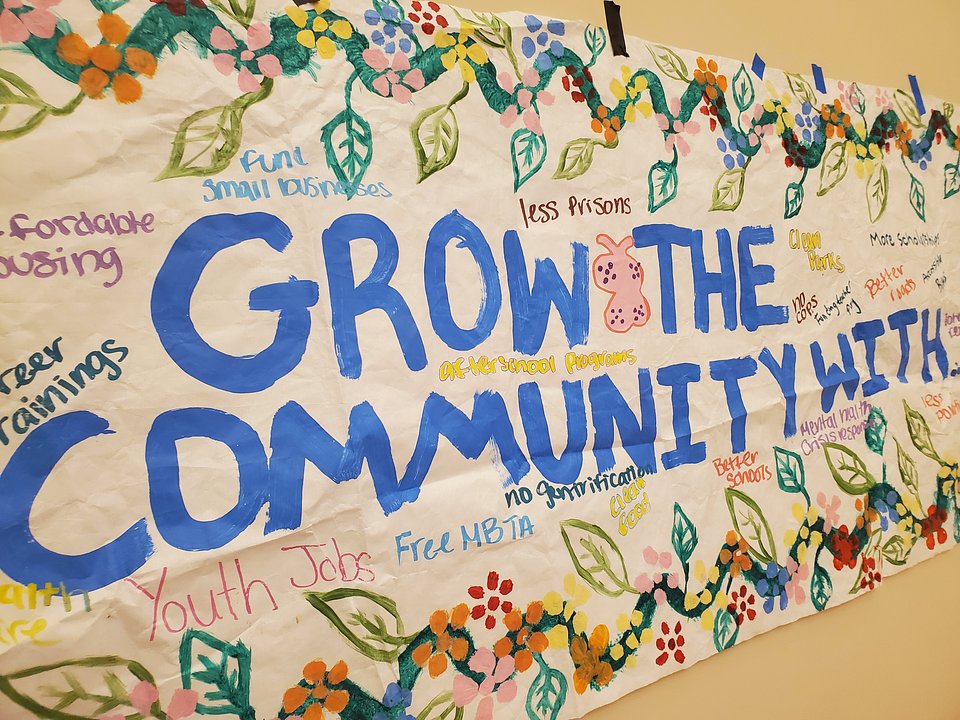
###
The Better Budget Alliance (BBA) is a city-wide coalition of 30+ grassroots organizations rooted in Boston’s working class and BIPOC neighborhoods. The BBA organizes to increase democracy, equity and transparency in Boston’s budgeting decisions.
The Better Budget Alliance (BBA) is a city-wide coalition of 30+ grassroots organizations rooted in Boston’s working class and BIPOC neighborhoods. The BBA organizes to increase democracy, equity and transparency in Boston’s budgeting decisions.

